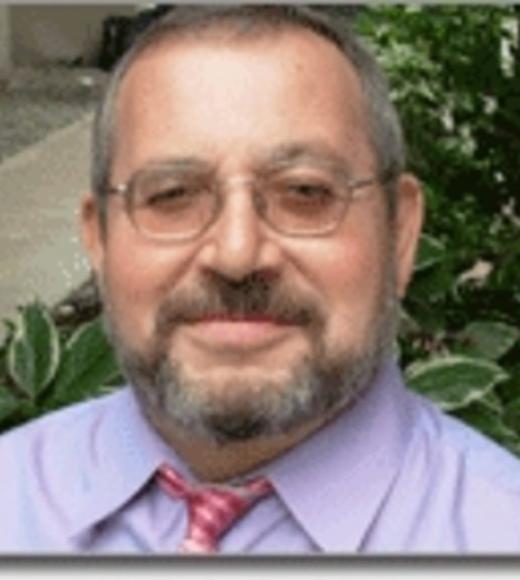Above: Dr. Patrick Marius Koga (center, in green shirt and purple tie), pictured with members of the Kyrgyz Psychiatric Association in Bishkek, Kyrgyzstan in November 2010. The event marked the beginning of Koga’s Ulysses Project as a refugee mental health research program on the global scale.
DAVIS, CALIFORNIA — Since founding The Ulysses Project in 2009, Dr. Patrick Marius Koga of UC Davis has been helping refugees overcome PTSD, depression, and anxiety disorders since 2010.
The program’s name is apt: in Ulysses, the Latinized name of Odysseus, Koga sees a metaphor for “the eternal refugee,” the hero’s journey as a course of post-traumatic metamorphosis. The name also derives from “Ulysses Syndrome,” coined by Dr. Joseba Achotegui, co-director of the Project with Koga. This term distinguishes between the psychological symptoms and sociocultural causes of a refugee’s pain. At heart, Achotegui writes on his website, Ulysses Syndrome “is not a mental disorder but extreme migratory grief.”
Accordingly, “Since these are people who are traumatized due to a major life disruption, what they most need is support to rebuild their lives,” says Koga, an associate professor of public health at the UC Davis School of Medicine.
Although he began the Ulysses Project primarily as a psychiatric aid program for refugees facing post-traumatic stress disorder, anxiety, and depression, he soon found through patient feedback that a “doctor can’t prescribe a house, can’t prescribe a job. As soon as I opened my clinic in Sacramento, refugees from Afghanistan, Iran, Iraq, Syria were telling me ‘I don’t need medication. I lost my identity. I lost my license. I lost my prospects. I need that back.’”
Koga is himself a refugee, having come to California from Romania in 1988. “I was a psychiatric doctor during the Communist dictatorial regime, and came to America through a refugee camp in Belgrade,” he said. “It was a long and painful process rebuilding my career with no system in place to retrain those from professional classes in their home countries, and to help them integrate into new communities, so I began this project.”
Over the 14 years since then, more than 250 staff members involved with the Ulysses Project — nearly all of them former refugees or immigrants themselves — have volunteered over 25,000 hours of work across programs ranging from trauma counseling; clinical health screening; women’s reproductive health support; reentry mentoring for refugees with professional health backgrounds; lectures, publications, and workshops through UC Davis; counseling for detained refugees; and lobbying with the California House of Representatives for bills which create professional reentry programs for refugee doctors.
While lowering institutional barriers to refugee integration is crucial to the Ulysses Project’s goal, however, this lobbying has not garnered widespread support from Democratic or Republican members of the House.
Koga attributes this lack of success largely to the fact that “thousands of refugees are not big enough to sway the tens of millions of voters these politicians depend on.” Furthermore, the factors that hold refugees back from professional reentry are not merely institutional, but often cultural.
“To overmedicalize the isolation that refugees face is to forget about the social causes of this isolation,” he said. “An elderly Afghan woman coming to California from a rural village with little resources or language skills has different barriers than a young Afghan woman coming to California to study medicine, though they may both feel grief. So far we’ve trained twelve former refugees and immigrants who earned their Masters of Public Health at UC Davis by studying these barriers in their own communities.”
Often central to these barriers is social obligation.
“You may be a doctor from Iraq,” Koga said, “but what if you’re also a woman with three children at home? What if your own mother at home needs money for an operation? How do you separate from traditions of women’s oppression that follow you here? For some, because they work here with Americans, their relatives are blacklisted by extremist groups back home. How can you treat these issues with a pill? How can you convince a legislator to treat these issues through policy? The meaning of professional ‘empowerment’ changes.”
In 2010, Koga expanded The Ulysses Project from Northern California to the global scale by joining the Kyrgyz Psychiatric Association to train psychologists in trauma intervention and professional counseling for victims of interethnic Kyrgyz-Uzbek violence.
Since then the Project has spread worldwide through collaborations with researchers in universities across Spain, Russia, Egypt, Lebanon, Afghanistan, and Palestine. A major, ongoing topic of study is the impact of generational and social acculturation on domestic violence in Arab refugee families.
Throughout these programs, the core of the Ulysses Project remains the treatment of mental health disorders among refugees. To date, volunteers have provided over 6,000 hours in Arabic, Dari, Pashto, and English to patients from Iraq, Afghanistan, Iran, and Syria, and continue to provide telecounseling via Skype to Arab refugees in Turkey. However, Koga stresses that this treatment is most effective demedicalized.
“Any psychiatric support should help a patient who has lost their prospects rebuild them, to treat their suffering in its present form of grief but also to acknowledge it as a source of future personal growth,” Koga said. “Like a sword hammered by fire, the refugee’s destiny is not victimization but evolution. Rumi wrote of ‘the crack through which the light gets in.’ If our wounds are not understood and embraced as opportunities for transformation, we become eternal patients instead of growing souls.”






